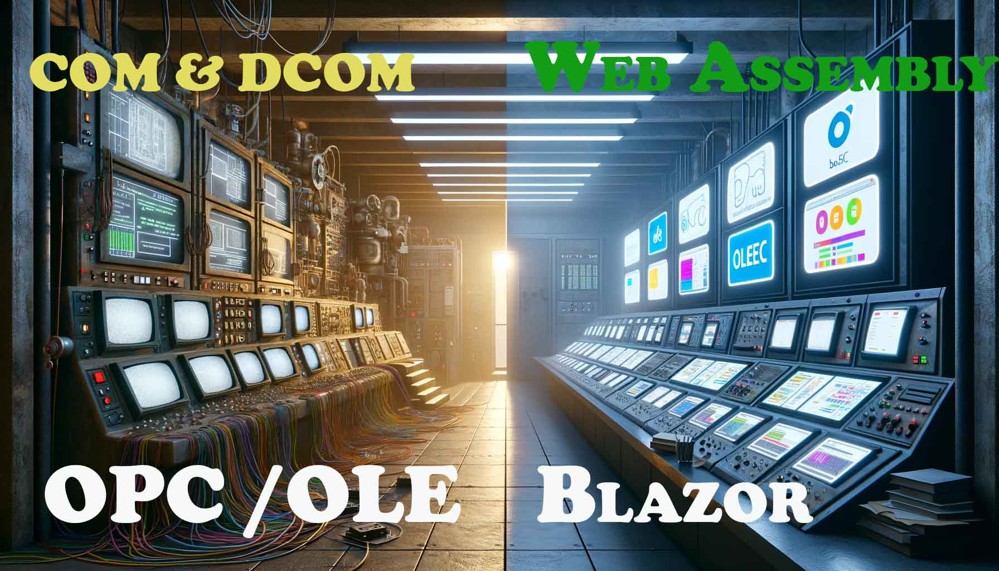Unveiling the Future: Blockchain-Based Supply Chain Visibility and Blue Ocean Opportunities in SaaS

The global marketplace is witnessing a transformative shift in the way businesses manage their supply chains. Traditional supply chain management systems often face challenges related to transparency, traceability, and efficiency. Enter Blockchain-Based Supply Chain Visibility, a revolutionary solution offered through Software as a Service (SaaS) platforms. By leveraging the decentralized and transparent nature of blockchain technology, these platforms promise to automate and enhance supply chain visibility, allowing businesses to track products seamlessly from production to delivery. This article explores the essence of Blockchain-Based Supply Chain Visibility and investigates blue ocean use cases that can be translated into profitable business opportunities within the SaaS sector.
The Essence of Blockchain-Based Supply Chain Visibility
Blockchain technology, renowned for its decentralized and immutable ledger, is harnessed to address the complexities of modern supply chains. In the context of supply chain visibility, blockchain ensures that every step of the supply chain process is recorded securely and transparently. This decentralized ledger eliminates the need for intermediaries, reduces the risk of fraud, and enhances the traceability and transparency of products from their origin to the end consumer.
Key Features of SaaS Platforms Offering Blockchain-Based Supply Chain Visibility
- Immutable Record Keeping:
- Every transaction, from the manufacturing of goods to their transportation and delivery, is recorded on the blockchain. This ensures an immutable and tamper-resistant record that enhances trust and transparency.
- Decentralized Data Sharing:
- Blockchain's decentralized nature allows for secure and efficient data sharing among all stakeholders in the supply chain. This promotes collaboration, reduces the risk of data silos, and ensures real-time visibility for all participants.
- Smart Contracts for Automation:
- Smart contracts, self-executing contracts with the terms of the agreement directly written into code, enable automated processes within the supply chain. These contracts facilitate tasks such as payment processing, inventory management, and order fulfillment without the need for intermediaries.
- Real-Time Tracking and Tracing:
- Businesses can track the movement of products in real-time, providing granular details on their location, condition, and handling throughout the supply chain. This not only enhances visibility but also enables rapid response to potential issues.
- Enhanced Security and Fraud Prevention:
- The cryptographic principles of blockchain enhance the security of supply chain data. By ensuring that information cannot be altered without consensus, blockchain significantly reduces the risk of fraud, counterfeiting, and unauthorized changes to supply chain records.
Blue Ocean Use Cases for Business Process Automation
- Ethical and Sustainable Supply Chains:
- Address the growing consumer demand for ethically sourced and sustainable products. A SaaS platform that leverages blockchain can trace the origin of raw materials, ensuring compliance with ethical and sustainability standards, and creating a competitive advantage for businesses in such sectors as fashion, food, and electronics.
- Pharmaceutical Authentication:
- Tackle the counterfeit pharmaceutical market by offering a SaaS solution that ensures the authenticity and integrity of pharmaceutical products. Blockchain-based supply chain visibility can verify the legitimacy of drugs, safeguarding the health of consumers and meeting regulatory compliance.
- High-Value Asset Tracking:
- Target industries dealing with high-value assets such as luxury goods, high-end electronics, and fine art. Blockchain-based supply chain visibility can provide an unbroken chain of custody, assuring consumers of the authenticity and quality of these valuable products.
- Agricultural Supply Chain Transparency:
- Cater to the agricultural sector by developing a SaaS platform that enhances transparency in the food supply chain. Blockchain can track the journey of agricultural products from the farm to the table, ensuring food safety, reducing waste, and meeting increasing consumer demand for traceability.
- Cross-Border Trade Facilitation:
- Address the complexities of cross-border trade by providing a SaaS solution that streamlines customs processes, reduces paperwork, and enhances visibility into the movement of goods across borders. This use case is particularly relevant for businesses involved in international trade and logistics.
Profitable Business Opportunities in SaaS
- Subscription-Based Revenue Models:
- Implement subscription-based pricing models to offer different plans catering to the diverse needs of businesses. This ensures a steady and recurring revenue stream for the SaaS provider.
- Consultation and Integration Services:
- Provide consultation services to help businesses integrate blockchain-based supply chain visibility seamlessly into their existing processes. Offering customization options and integration with other enterprise systems can justify premium pricing.
- Data Analytics and Reporting Services:
- Leverage the wealth of data generated by the platform to offer advanced analytics and reporting services. Businesses value actionable insights derived from their supply chain data, creating additional revenue streams.
- Partnerships and Collaborations:
- Collaborate with stakeholders in the supply chain ecosystem, including manufacturers, logistics providers, and retailers. Forming strategic partnerships can enhance the reach and impact of the SaaS platform, opening up new avenues for growth.
- Continuous Innovation:
- Stay at the forefront of technological advancements by investing in research and development. Regular updates and the introduction of new features ensure that the SaaS platform remains a cutting-edge solution in the dynamic field of supply chain management.
Blockchain-Based Supply Chain Visibility, delivered through SaaS platforms, stands as a beacon of innovation in the realm of business process automation. As businesses increasingly recognize the value of transparency, traceability, and efficiency in their supply chains, SaaS providers in this space have the opportunity to pioneer transformative solutions. By navigating the uncharted waters of blue ocean opportunities, these providers can not only streamline supply chain processes but also establish themselves as leaders in an evolving landscape where blockchain and automation converge to reshape the future of supply chain management.



